Democracy
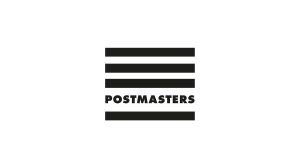
Postmasters presents Nicola Verlato, Donato Piccolo and Kristin Lucas
Paulina Bebecka - Postmasters Gallery, PostmastersROMA, Rome (IT)
In the current uncertain climate of physical disconnection, hyper digital connection and distortion of life as we know it, I wanted to express that humanity is still at the very core of our increasingly technological experience on earth. The chosen artists bring about an examination of reality and the need to cherish our humanity through various digital media, such as artificial intelligence, 3D scanning, 3D gaming software, generative 360 WebXR animation, drones, and techno.
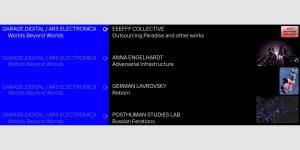
Garage Digital: Worlds beyond Worlds
Garage Museum of Contemporary Art / Nikita Nechaev, Moscow (RU)
Works and practices of several artists and collectives, that participate in Garage Digital program, reflect on the different types of networks, infrastructures, ecologies and algorithms, and pose questions of the possible tactics and strategies to reassemble these systems with new types of communities, modes of rationality and production in mind —cunning, poetic, speculative and emergent.

COVID-19 Crisis: How could/can society change?
Walter Ötsch, Renata Schmidtkunz, Antonia Birnbaum, Evelyn Bodenmeier, Leonhard Dobusch, Sighard Neckel
Walter Ötsch develops two scenarios for the future of society: a positive and a negative one. He will give an overview of the possible ideas for the future, both positive and negative, that were considered in the workshop. Together, obstacles and options for the future are discussed.

COVID-19 Crisis: What options does civil society and social media have?
Walter Ötsch, Renata Schmidtkunz, Leonhard Dobusch, Evelyn Bodenmeier
We invite people from the fields of philosophy, sociology, economics and media studies to take part in a public discussion. Experts will present their views, challenge each other and offer suggestions for the future of our society.
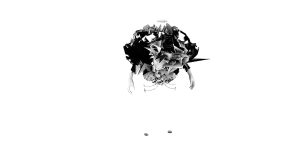
The Digital Anthropology Lab project
Live sessions Daily live stream that will run for an hour. During the hour of streaming different events will take place which will only be announced on the day. Many visitors can log in at once and will be able to switch cameras and views to experience different aspects of the space. The sessions are also meant as Q/A for people to ask questions about the Draping Interfaces project and the Digital Anthropology Labs.

COVID-19 Crisis: Future Scenarios
Walter Ötsch, Renata Schmidtkunz, Sighard Neckel, Antonia Birnbaum
The coronavirus shock will change society and it will not be possible to return to the "normal state of affairs" we had before the crisis. Two scenarios are outlined: (1) In the negative scenario, the coronavirus shock will bring little change on the surface, but will, in fact, fundamentally reshape the political shell that surrounds capitalism. This is explained in analogy to developments after the 2008 financial crisis, in which the elites who caused the crisis were not challenged and held accountable. In this thoroughly realistic scenario, a new authoritarian form of capitalism can emerge, in which the new power for the states is also expanded into new forms of surveillance. (2) The positive scenario ties in with many historical experiences in which the world was improved after crises. We are currently experiencing a redesign of political action that contains positive moments such as new forms of talking collectively about fears, new forms of solidarity with strangers and the experience of how important and powerful politics can be. Perhaps in this scenario it may be possible to combine the corona shock with concerns about the coming ecological crises and to take effective steps to mitigate them.
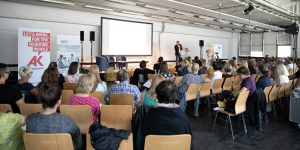
Symposium “Perspektiven politischer Bildung”
Arbeiterkammer OÖ (AT), Pädagogische Hochschule OÖ (AT)
Artificial Intelligence (AI) is omnipresent, without us always being aware of it. For many years now, it has been making our everyday lives easier, for example when cell phones are unlocked by means of face recognition or when individual advertising guides us through the jungle of the Internet. AI can manipulate us humans. Can it thus become a danger to democracy? The first signs of this apparent development were brought about by the brexite vote or the US presidential elections, for example.
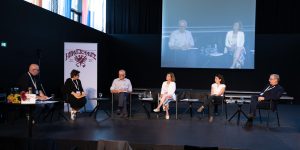
COVID-19 Crisis
Walter Ötsch (AT), Renata Schmidtkunz (AT)
We invite people from the fields of philosophy, sociology, economics and media studies to take part in a public discussion of these questions. Experts will present their views, challenge each other and offer suggestions for the future of our society.
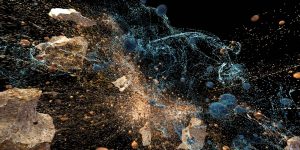
Live Program of Telluric Vibrations, UCLA Botanical Gardens – Los Angeles
Enjoy the extensive live Program of Telluric Vibrations, UCLA Botanical Gardens – Los Angeles
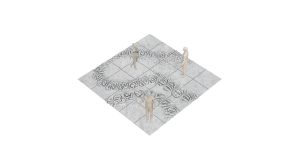
The Platform
UMPRUM, Academy of Arts, Architecture and Design in Prague (CZ)
The crisis of recent months is forcing us to rethink topics that we until recently took for granted. One of them is the idea of public space as an open platform for meeting people and exchanging ideas, a space without borders that is suddenly confronted with security rules. Just as these risks first affected the public areas of airports and later social public events, now the public space in general is affected by strengthen security rules.
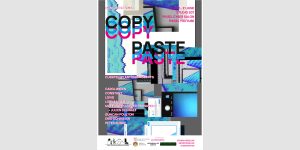
COPY PASTE Curator's Tour
Antonio Roberts (UK)
Video recorded lecture with Q&A from the curator Antonio Roberts will guide us through each work at the Piksel Cyber Salon exhibition. If you are an artist, then you have no doubt copied the work of others. This copying can range from using pages from a magazine in a collage to adopting the style of another artist, or simply being inspired by their work. This natural process of copying, taught to us at every stage of our artistic development, is burdened with a very complex and messy set of laws and social conventions which define and limit how we can use copying in our practices. They don't account for exceptions or nuances, and come from a historical world in which artworks were scarce physical objects, not translating well into a world in which culture is abundant and can be accessed and copied at will.
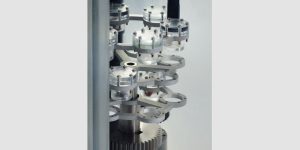
Digital Exhibition Sojourner 2020 – A conversation among all artists
Through the ages, artists, writers, and filmmakers have been inspired by space. Their visionary depictions of space as an environment for people have influenced the scientific and engineering feats we know so well today. How will artists continue to inspire the future of space exploration? What are the opportunities and challenges in the creation of art for our interplanetary futures?

COPY PASTE Exhibition at Piksel Cyber Salon
The COPY/PASTE exhibition features the work of nine artists and art collectives who make copying a core aspect of their work. Taking the form of an online exhibition at Piksel Cyber Salon, it aims to show that copying is natural, and to re-think how we create/share/copy and paste. If you are an artist, then you have no doubt copied the work of others. This copying can range from using pages from a magazine in a collage to adopting the style of another artist, or simply being inspired by their work. This natural process of copying, taught to us at every stage of our artistic development, is burdened with a very complex and messy set of laws and social conventions which define and limit how we can use copying in our practices. They don't account for exceptions or nuances, and come from a historical world in which artworks were scarce physical objects, not translating well into a world in which culture is abundant and can be accessed and copied at will.
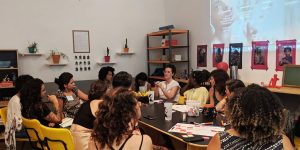
On a Journey with Alma
Giulia Tomasello (IT)
Alma is a wearable biosensor designed to monitor vaginal fluids. We strive to support and educate women about their intimate health through technology. Giulia Tomasello, designer and co-founder of Alma, will guide you through the research and prototype development at the Fraunhofer IZM TexLab in Berlin.
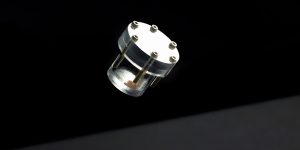
Digital Exhibition: Sojourner 2020
In 2019, the Space Exploration Initiative announced an open call to invite artists to submit artworks for an exciting ISS launch opportunity. After three rounds of reviews, nine groups of artists are selected to be on board Sojourner2020, an international art payload. For this year's Ars Electronica In Kepler’s garden online program, we created a digital spaceship to share the diverse portfolio from the initiative. Audiences are invited to immerse themselves in this digital world, walk around and encounter each other.

Eebo Video Tutorial
eebo (AT)
Eebo is a video platform in Uganda which aims to help creators market their content to viewers who pay for access to their work directly. For users to access said content without internet cost, its strategy is to open up as many public WiFi hotspots as possible.
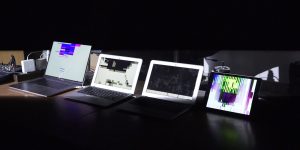
Datasets vs Mindsets
Dmitry Bulatov, Lev Manovich, Alla Mitrofanova, Helena Nikonole, Daria Parkhomenko, Yanina Prudenko, Olga Vad
Public talks by the leading Russian-speaking thinkers and philosophers of new media.
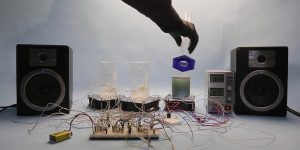
Datasets vs Mindsets: Performance Program
Katarina Melik-Ovsepian + Nikita Prudnikov (aka monekeer) (RU), Maria Molokova (RU), Kira Weinshtein (RU), Nikolay Golikov, Yulia Glukhove (holoherz), EOLA
The project includes a one-day performance program using innovative forms of representation and interaction between online and offline formats, such as new approaches to webcasting and experimental web-interfaces, which create brand-new user experiences for online visitors.

The Woman-Machine: Performance
Golem Mécanique (FR)
Watch this performance on Ars Electronica Voyages Channel and the Livestream.

The Woman-Machine: Performance
Félicia Atkinson (FR)
Watch this performance on the Livestream.


